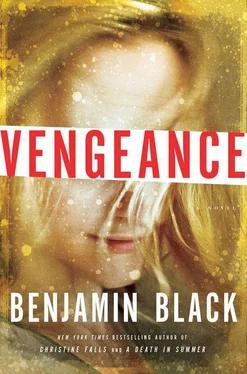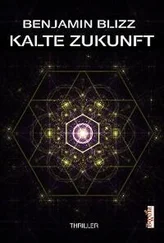Benjamin Black - Vengeance
Здесь есть возможность читать онлайн «Benjamin Black - Vengeance» весь текст электронной книги совершенно бесплатно (целиком полную версию без сокращений). В некоторых случаях можно слушать аудио, скачать через торрент в формате fb2 и присутствует краткое содержание. Жанр: Полицейский детектив, на английском языке. Описание произведения, (предисловие) а так же отзывы посетителей доступны на портале библиотеки ЛибКат.
- Название:Vengeance
- Автор:
- Жанр:
- Год:неизвестен
- ISBN:нет данных
- Рейтинг книги:4 / 5. Голосов: 1
-
Избранное:Добавить в избранное
- Отзывы:
-
Ваша оценка:
- 80
- 1
- 2
- 3
- 4
- 5
Vengeance: краткое содержание, описание и аннотация
Предлагаем к чтению аннотацию, описание, краткое содержание или предисловие (зависит от того, что написал сам автор книги «Vengeance»). Если вы не нашли необходимую информацию о книге — напишите в комментариях, мы постараемся отыскать её.
Vengeance — читать онлайн бесплатно полную книгу (весь текст) целиком
Ниже представлен текст книги, разбитый по страницам. Система сохранения места последней прочитанной страницы, позволяет с удобством читать онлайн бесплатно книгу «Vengeance», без необходимости каждый раз заново искать на чём Вы остановились. Поставьте закладку, и сможете в любой момент перейти на страницу, на которой закончили чтение.
Интервал:
Закладка:
Did she ever do anything, he wondered, without having first calculated the effect? She did not seem a woman lost in grief. And yet he detected something in her which was not to do with the death of her husband, something that would always be there, something worried, tentative, watchful. Spoiled children had that look, of knowing deep down that all the petting and the pampering might at any moment just stop, without the slightest warning.
On the wall behind her there was a Mainie Jellett abstract in a heavy gilt frame. She gazed up at the two men, widening her violet eyes. “Have you found out what happened on that boat?” she said. “I assume it was some kind of awful accident?”
They were conscious, Quirke and the Inspector, of looming awkwardly before her; under her gaze Quirke felt like a less-than-first-rate thoroughbred being assessed by an unconvinced buyer.
“Well, Mrs. Delahaye,” the Inspector said, still twirling the hat brim behind his back, “that’s what we wanted to talk to you about.” He fetched a chair and brought it forward, his boots squeaking, and set it in front of the sofa and sat down, placing his hat primly in his lap. “In fact,” he said, putting on his gentlest, his most winning smile, “we were hoping you might be able to help us come to some conclusion about what exactly happened.”
The woman looked past him to Quirke, still standing in the same spot, with one hand in a side pocket of his jacket and the other holding his hat. “ You’re not a policeman, though, are you?” she said, frowning.
“No,” Quirke said. “I’m a pathologist.”
“Yes,” Mona said, putting on again the strained frown that was surely deliberate. “Is that like a coroner?”
Quirke smiled and shook his head. “No, not really. I did the-em-the postmortem, this morning, on your husband.” She waited, wide-eyed but inexpectant-in fact, giving the impression that at any moment she might close her eyes and drift off into sleep, like a cat. “It seems he-well, it seems he shot himself,” Quirke said. “I’m sorry.”
“Oh,” she said, “I know that-I mean, I know he was shot. They told me all that.” She was looking about now for an ashtray. Quirke fetched one from the sideboard and she took it from him and set it on her knee and tipped an inch of ash into it. He stepped away from her and sat down, perching on the broad arm of the sofa. Although the room was large he felt disproportionate to everything in it, which gave him a giddy, toppling sensation. Mona Delahaye’s loveliness seemed to pervade the room, heavy and sweet, like the smell of the roses.
Hackett tried another tack. “Tell me, Mrs. Delahaye,” he said, “your husband’s business-is everything all right in that regard?”
Mona Delahaye’s eyes grew rounder still. “What do you mean?”
“I mean,” the detective said, shifting on his chair, “there’s not any-any financial problem, is there?”
Quirke looked from the woman to the detective and back again. She was leaning forward, gazing searchingly into Hackett’s face. “I don’t know,” she said simply. “How would I know? Victor wouldn’t have talked to me about things like that. You see”-she leaned still more intently forward-“Victor and I didn’t really know each other, not in that way, not in a way that we would talk about his work or anything serious like that. He kept that kind of thing to himself.” She paused, and glanced at the floor, then looked up again, and now switched her gaze to Quirke where he sat on the arm of the sofa, a large man in black, watching her. “When we got married, three years ago, Victor’s wife, Lisa, his first wife, had died only a couple of years before, and I don’t think he realized what he was doing-marrying me, I mean.” She had the earnest air of a schoolgirl explaining that by some anomaly she had not been taught long division, or how to parse a sentence. Quirke thought he had never before encountered such a striking mixture of artlessness and calculation. “I’ve been thinking about all this since yesterday,” she said, “since the news came. I suppose it sounds very strange, to say he didn’t know what he was doing when we got married, but that’s how he always seemed to me. Like a sleepwalker.”
There was a pause. Far off in the house somewhere someone was whistling; that would be the redheaded maid, Quirke thought.
“Does that mean,” the Inspector said, “that he might have been neglecting the business?”
Mona Delahaye stared at him and then shook her head and gave a little laugh. “Oh, no,” she said. “He would never do that, he would never neglect the business. He was very good at what he did.” She gestured with her cigarette at the surrounding room, with its plush upholstery, its pictures, its padded quiet. “He was rich, as you can see,” she said. She might have been speaking of someone she had not known personally but had only heard of, the absent proprietor of all these polished possessions.
They heard voices in the hall. Mona Delahaye stubbed out her cigarette hastily, as if she were afraid to be caught smoking. The door opened and a young man with blond hair put in his head. “Oh, sorry,” he said, seeing Quirke and the Inspector. He came in, followed by a young man who was his double. They were tall and slim, with long, slightly equine heads. Their hair was of a remarkable shade, almost silver, and very fine, and their eyes were blue. They had the look of a pair of fantastically realistic shop-window manikins. They were dressed in white, down to their white plimsolls, and brought with them a suggestion of sun-warmed grass and willow bats and scattered applause drifting across a trimmed, flat sward. “You must be the police,” the young man said, and advanced on Quirke with a hand extended. “I’m Jonas Delahaye. This is my brother, James.”
Quirke took the young man’s hand and introduced himself. “He’s a coroner,” Mona Delahaye said. Both her stepsons ignored her.
“Pathologist,” Quirke said to the twins. “This is Inspector Hackett.”
Jonas Delahaye gave Hackett the merest glance, then turned back to Quirke and gazed at him with frank and faintly smiling interest. “Dr. Quirke,” he said. “I think I know your daughter.”
This put Quirke momentarily at a loss. “Oh,” he said lamely, “Phoebe, yes.” He had never heard his daughter mention Jonas Delahaye, or not that he could recall; but then, he was not much of a listener.
“At least, I know a friend of hers-your assistant, I believe. David Sinclair.”
“Oh,” Quirke said again, nodding. He felt acutely this young man’s almost invasive presence. “Yes, David is my assistant,” he said. “How do you know him?” Jonas ignored this question, as if he had not heard it, and went on gazing almost dreamily into Quirke’s face. His brother had wandered to the table in the middle of the room, on which there was a pewter dish with apples. He took an apple and bit into it, making a crisp, cracking sound. He seemed dourly disaffected, compared to his smiling brother. Of the two, it was apparent that Jonas was the dominant twin. Neither one of them had given the slightest sign of acknowledgment of their stepmother, who had turned her face away and was gazing out into the sunlit garden.
“So,” Jonas said, throwing himself down in an armchair and hooking one leg over the side of it, “what happened to my father?” He looked from Quirke to the Inspector and then at Quirke again.
“Your father died of a gunshot wound,” Hackett said. “It seems he fired the shot himself.”
Jonas pulled a dismissive face. “I don’t believe it,” he said. “Davy Clancy was with him on the boat. Have you spoken to him?” He was looking at Quirke. “He should be able to tell you what happened.”
Читать дальшеИнтервал:
Закладка:
Похожие книги на «Vengeance»
Представляем Вашему вниманию похожие книги на «Vengeance» списком для выбора. Мы отобрали схожую по названию и смыслу литературу в надежде предоставить читателям больше вариантов отыскать новые, интересные, ещё непрочитанные произведения.
Обсуждение, отзывы о книге «Vengeance» и просто собственные мнения читателей. Оставьте ваши комментарии, напишите, что Вы думаете о произведении, его смысле или главных героях. Укажите что конкретно понравилось, а что нет, и почему Вы так считаете.












